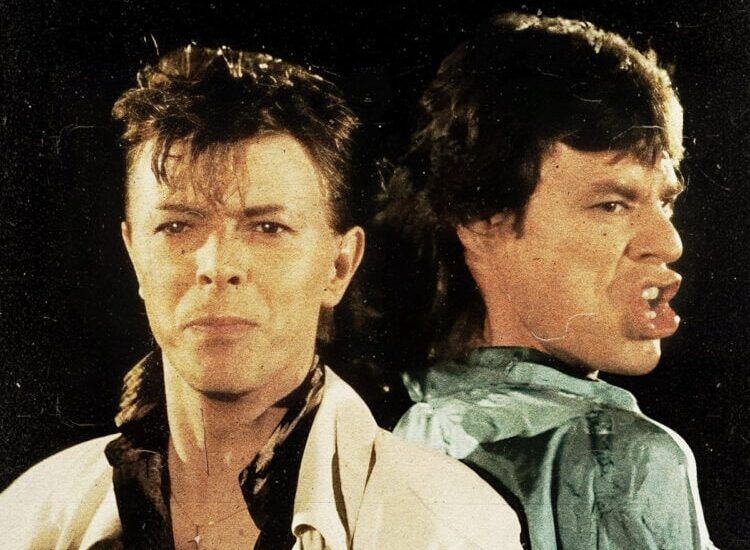
News Now:David Bowie on the “most rebellious” nature of Mick Jagger……
David Bowie and Mick Jagger are two of the most iconic figures in the history of rock and roll. Both transcended the boundaries of their respective genres and carved out legacies that not only shaped the music industry but also challenged societal norms. Their friendship, rooted in mutual respect and admiration, is one of the most well-known alliances in the world of music. One of the most revealing insights into their relationship came when Bowie described Mick Jagger as the “most rebellious” person he had ever met. This statement, though simple in its wording, opens up a deeper exploration into both Jagger’s and Bowie’s personalities, their artistic visions, and how they both used rebellion as a tool to carve out their individual paths in a world that often sought to stifle such defiance.
The Nature of Rebellion in Rock and Roll
Rebellion in rock and roll is far from a new or unique concept. From the very birth of rock music, artists have used their music, image, and public personas as ways to defy conventional expectations. The 1950s saw Elvis Presley’s swiveling hips and wild hair igniting a cultural revolution. The 1960s brought the Beatles’ countercultural movement and the birth of rock as a form of self-expression and protest. By the time Bowie and Jagger came to prominence in the 1970s, rock music had firmly established itself as a platform for rebellion—not just against the establishment but against traditional ideas of gender, sexuality, and personal identity.
For Mick Jagger, his rebelliousness was both a product of his personality and his cultural moment. Jagger became a cultural icon partly due to his bold approach to sexuality and his refusal to conform to the conventional expectations of what a rock star should be. His charismatic stage presence, combined with his androgynous fashion choices and sexually liberated persona, made him a target of both admiration and scorn. Jagger’s public image was often one of defiance, both in his personal life and his musical output. He was, and continues to be, a symbol of freedom, chaos, and non-conformity.
David Bowie, on the other hand, took the concept of rebellion to new heights. While Jagger’s rebelliousness was rooted in defying social and sexual norms, Bowie’s rebellion was multidimensional. He challenged traditional ideas of gender through his androgynous alter egos, like Ziggy Stardust, and was one of the first artists to openly embrace bisexuality in the mainstream. Bowie was constantly reinventing himself, whether it was musically, visually, or conceptually, refusing to be boxed into any one identity. This constant transformation was, in itself, a radical act, and one that mirrored Jagger’s own free-spirited approach to fame.
Bowie’s Admiration for Jagger’s Rebellious Spirit
David Bowie’s acknowledgment of Jagger as the “most rebellious” person he had ever met highlights a profound admiration for Jagger’s fearless nature. Jagger’s commitment to staying true to his own desires, whether in his personal relationships, public image, or musical career, was something that Bowie greatly respected. For Bowie, rebellion was not merely an act of defiance against authority or tradition; it was a way of carving out an authentic, unflinching identity in a world that often sought to homogenize or marginalize individual expression.
Bowie’s own artistic journey was fraught with his own form of rebellion, especially in his early years. His early music, including his 1972 breakthrough album The Rise and Fall of Ziggy Stardust and the Spiders from Mars, was a direct challenge to the conventions of the time. He openly embraced and promoted the idea of fluidity in gender and identity, challenging norms that were oppressive and limiting. But while Bowie was certainly rebellious, Jagger’s steadfast, unapologetic defiance was something that, according to Bowie, surpassed even his own commitment to rebellion.
The admiration between the two was not one-sided. Mick Jagger, too, spoke of his respect for Bowie, particularly in relation to his innovation and audacity. Jagger saw in Bowie a fellow spirit—an artist unafraid to push boundaries and redefine what it meant to be a musician and a public figure. Their friendship was based on this mutual respect, even if they operated in different creative spaces.
The Influence of the 1960s and 1970s on Their Rebelliousness
The 1960s and 1970s were transformative decades for both Jagger and Bowie, marked by cultural upheaval, the rise of countercultures, and societal movements that rejected traditional values. For Jagger, the 1960s were a time when rock music became a vehicle for questioning authority and social mores. The Rolling Stones, with their raw, rebellious energy, became an embodiment of this.
You may also like
Archives
Categories
- ABA
- Actor
- Actress
- Actress and singer
- Band
- Baseball
- Basketball
- Boxer
- Broadcasting corporation
- CCR
- cricketer
- Cyclists
- Dart
- Drummer
- Fictional character
- Football game
- Formula 1
- Golf
- Guitarist and songwriter
- Guitarists
- Gymnastics
- Hockey
- Ice hockey
- Marathon
- MLB
- Motocross
- MotoGP
- Motorcross
- Musician
- Musician and drummer
- NFL
- NHL
- NRL
- Racer
- Red bull Racing
- Rider
- Rock band
- Rugby league
- Simone Biles
- Singer and songwriter
- Songwriter and musician
- Sport commentator
- Tennis
- Texas longhorns
- Track and field athlete
- Uncategorized
Leave a Reply